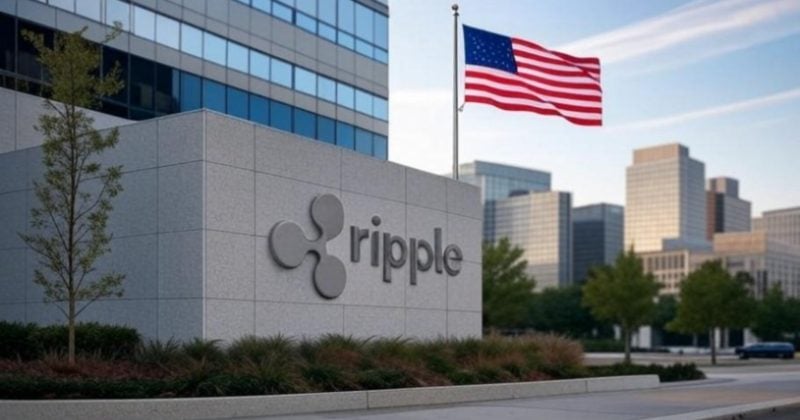Key Takeaways
- Ripple joins a wave of crypto firms seeking federal banking licenses.
- Beyond its stablecoin business, Ripple hinted at plans to offer broader crypto-based financial services under a national banking framework.
Share this article
San Francisco–based blockchain payments firm Ripple has formally applied for a national banking license from the US Office of the Comptroller of the Currency (OCC), according to a new report from the Wall Street Journal. The application was filed on Wednesday, July 2.
“True to our long-standing compliance roots, said Ripple CEO Brad Garlinghouse in a Wednesday statement. “If approved, we would have both state (via NYDFS) and federal oversight, a new (and unique!) benchmark for trust in the stablecoin market.”
The company, which also manages the dollar-backed RLUSD, currently operates its flagship stablecoin under the oversight of the New York Department of Financial Services. If Ripple’s application is approved, RLUSD would come under OCC supervision, which is stricter but offers enhanced transparency and compliance.
“The dual nature of that regulation would basically have set a new bar for transparency and compliance in the stablecoin market,” said Jack McDonald, who oversees Ripple’s stablecoin initiative.
Along with its bid for a banking charter, Ripple’s Standard Custody & Trust Company has filed to obtain a Federal Reserve master account, according to Ripple’s CEO. Garlinghouse said that this would allow Ripple to hold RLUSD’s dollar reserves directly with the Fed, increasing security and transparency.
This is especially important while US lawmakers are still working on clearer stablecoin regulations, and banks are becoming more open to crypto-related activities after past regulatory crackdowns, he noted.
Other crypto-native firms like Circle, BitGo, Coinbase, and Paxos are also actively pursuing bank-like status, per an April Wall Street Journal report.
On Monday, Circle confirmed that it had applied to the OCC for a national trust bank charter to enhance its digital assets custody and manage reserves for its USDC stablecoin.
Following the collapse of FTX and the failures of Silvergate and Signature Bank, traditional finance distanced itself from crypto, leaving many digital asset firms without banking access and under heightened regulatory pressure.
Now, with President Trump back in office vowing to make the US a “Bitcoin superpower,” the political climate is shifting, opening new paths for crypto firms to integrate more deeply into the financial system.
Some are seeking full bank charters; others are targeting limited-purpose licenses focused on stablecoin issuance. BitGo, for example, is reportedly close to applying for a charter and is holding reserves for USD1, a stablecoin tied to Trump-backed World Liberty Financial.
To date, Anchorage Digital remains the only crypto firm to secure a federal bank charter, obtained in 2021, an effort that required heavy compliance spending and intense regulatory oversight, according to CEO Nathan McCauley.
Share this article

